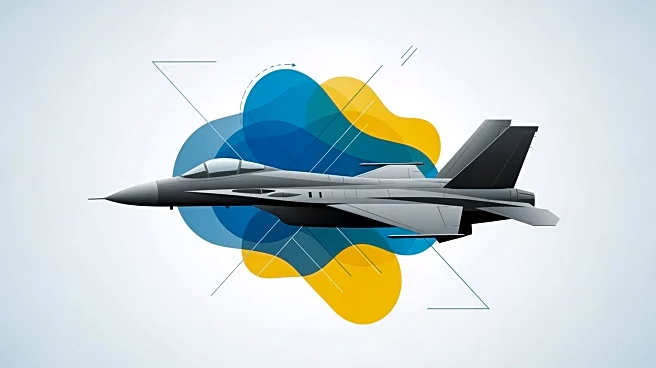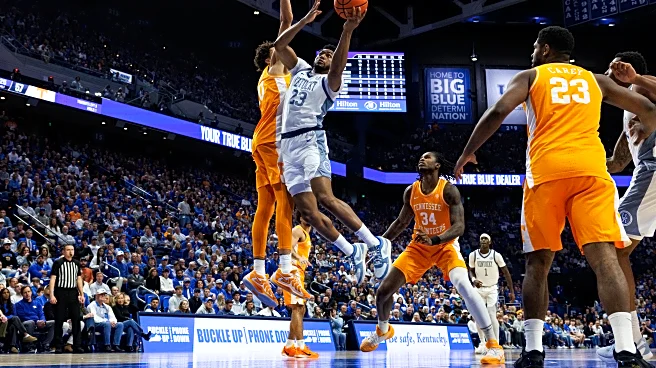What's Happening?
Ukraine has signed a letter of intent to purchase up to 100 Rafale warplanes, drones, air defense systems, and other key equipment from France over the next decade. This agreement, signed by Ukrainian President Volodymyr Zelenskyy and French President Emmanuel
Macron, aims to bolster Ukraine's long-term security amidst ongoing conflict with Russia. The Rafale jets, known for their advanced technology and maneuverability, are part of a strategic agreement that includes training and production programs. The deal also encompasses the acquisition of drones, guided bombs, and SAMP/T ground-to-air systems, with deliveries expected to begin within three years.
Why It's Important?
The agreement marks a significant step in strengthening Ukraine's defense capabilities as it faces continued aggression from Russia. The acquisition of advanced military equipment from France is expected to enhance Ukraine's ability to protect its infrastructure and citizens. This move also underscores the deepening military cooperation between Ukraine and France, potentially influencing the geopolitical dynamics in Europe. The deal could impact the defense industry, with Dassault Aviation, the manufacturer of Rafale jets, potentially increasing production to meet Ukraine's needs without affecting other international clients.
What's Next?
Ukraine is expected to begin receiving the first deliveries of the Rafale jets and other equipment within the next three years. Training programs for Ukrainian pilots will be initiated, although it may take up to three years to fully train Rafale pilots. The agreement may also lead to further discussions on financing, with Ukraine pushing to use frozen Russian assets to fund the defense package. Additionally, Ukraine's ongoing efforts to strengthen its military capabilities may lead to further international agreements and collaborations.
Beyond the Headlines
The deal highlights the ethical and legal complexities surrounding the use of frozen assets for military purposes. It also reflects the broader cultural and strategic shifts in European defense policies, as countries like France and Ukraine collaborate to counter Russian influence. The agreement may set a precedent for other nations seeking to enhance their military capabilities through international partnerships.
















